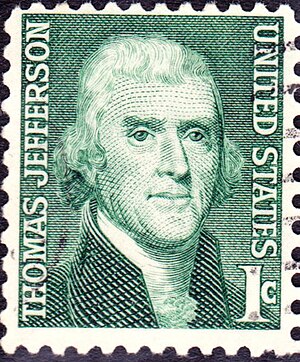On Intellectual Property
By Kristopher A. Nelson
in
June 2007
500 words / 3 min.
Tweet
Share
Image via Wikipedia Lawrence Lessig writes: Physical property and the intangible property we call copyright are different. Jefferson pointed to one difference. But the really crucial difference that I’ve been trying to get people to see is that physical property systems have a host of techniques to assure that the property system is efficient. Copyright […]
Please note that this post is from 2007. Evaluate with care and in light of later events.

- Image via Wikipedia
Physical property and the intangible property we call copyright are different. Jefferson pointed to one difference. But the really crucial difference that I’ve been trying to get people to see is that physical property systems have a host of techniques to assure that the property system is efficient. Copyright does not. Copyright is the least efficient property system constructed by government — which is saying a lot. And rather than continue sophomoric debates about who is “stealing” what, it’s about time that policymakers — and industry leaders — took responsibility for the inefficiency that copyright is.
Lessig is referring to Thomas Jefferson’s 1813 letter to Isaac McPherson, as quoted in A Primer in Modern Intellectual Property Law by Christopher Kelty:
If nature has made any one thing less susceptible than all others of exclusive property, it is the action of the thinking power called an idea, which an individual may exclusively possess as long as he keeps it to himself; but the moment it is divulged, it forces itself into the possession of every one, and the receiver cannot dispossess himself of it. Its peculiar character, too, is that no one possesses the less, because every other possesses the whole of it. He who receives an idea from me, receives instruction himself without lessening mine; as he who lights his taper at mine, receives light without darkening me. That ideas should freely spread from one to another over the globe, for the moral and mutual instruction of man, and improvement of his condition, seems to have been peculiarly and benevolently designed by nature, when she made them, like fire, expansible over all space, without lessening their density in any point, and like the air in which we breathe, move, and have our physical being, incapable of confinement or exclusive appropriation. Inventions then cannot, in nature, be a subject of property.
Intellectual property is intrinsically different from other forms of more tangible property. When it is shared, it is not (as Jefferson notes in his more poetic fashion) lessened, but rather increased. Thus, for example, if I were to download a Linux ISO, I have increased the reach and diffusion of the OS, but I have taken nothing away from the original copy possessed by the person I copied it from. This is in stark contrast to, for example, stealing someone’s car; if I do that, I possess it, and you do not. The property has been transferred and your interest in it diminished as mine is increased.
This foundational difference is always good to keep in mind when analyzing, for example, RIAA press releases!
